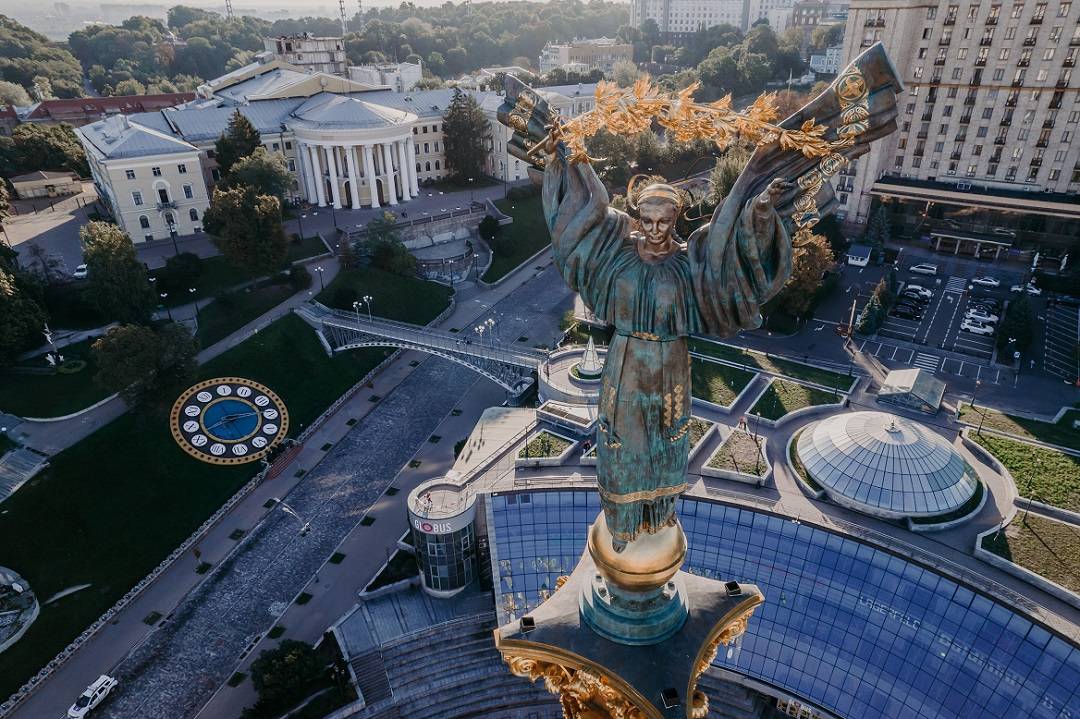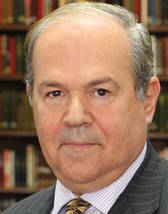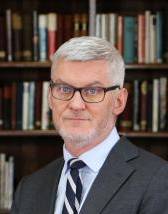A Sombre Hour for Europe
RUSI experts respond to the Russian invasion of Ukraine.
The main immediate goal for the Ukrainian resistance will be to survive. If it can do so, and keep inflicting damage on the occupiers, then Vladimir Putin’s gamble will be on course to fail.
A new Iron Curtain across the heart of Europe now seems inevitable. Where that curtain is drawn will depend on the outcome of the war for Ukraine.
The primary driver for this war of aggression has been a perverted nationalism, fed by the perceived humiliations of the past three decades. It is not economic.
Comprehensive Western sanctions should weaken Russia’s economy over time. But they will do little to affect the outcome of this war. Their impact could be further weakened if Russia is able to shift its trade towards China, India and other non-Western powers. Building a broad global coalition against Russia’s aggression will be key.
We should watch out for efforts to open up new fronts in Russia’s competition with the West – for example in Bosnia or Venezuela.
- Malcolm Chalmers, RUSI Deputy-Director General
We Told You So
Now is not the time for recriminations, but it is worth recalling that, for the central and eastern European members of NATO and the EU, the tragic events currently unfolding are precisely the sort of dangers and dire eventualities they have warned against for the past two decades.
Governments throughout central Europe have often argued that the threat of war has not disappeared from the continent; that Russia remains a revisionist power; that Moscow’s intent is to overthrow the post-Cold War security architecture; and that, after 2014, Ukraine needed proper military assistance, rather than specious debates about ‘non-lethal assistance’.
Yet all these arguments from the central and eastern Europeans were routinely dismissed by their Western counterparts as either irrational or unnecessarily pessimistic, the products of their alleged obsession with Russia. And one Alliance leader won some plaudits from the media and academic community for suggesting that NATO was ‘brain dead’ since it remained concerned with handling Russia.
When the central and east European leaders – now grouped under the so-called ‘Bucharest 9’ – meet in Warsaw tomorrow (25 February) to discuss the current war, they will not engage in any recriminations. But make no mistake: every single prime minister or president in the region believes that the Alliance could and should have done more to head off or mitigate the disaster now facing us. And each one of them feels vindicated.
Either way, the burden falling on the central and eastern Europeans is only likely to get heavier. They will be the conduits for the refugee convoys that are bound to stream out of Ukraine. They will also be the staging posts for any supplies of weapons for a future Ukrainian resistance movement. Reassuring them is now the biggest task facing both the Alliance and the EU.
- Jonathan Eyal, RUSI Associate Director, Strategic Research Partnerships
It’s Not Only About Ukraine
While immediate thoughts are rightly on the terrible price that Ukraine and its people are paying for Putin’s military misadventure and how best to respond, there is an urgent need for the transatlantic community to understand the wider implications of this crisis. Putin’s actions are not just focused on Ukraine and challenging NATO’s enlargement; they are born of a belief that the world is changing, and that the Western community is unable to adapt and respond effectively.
Critically, this is not just a crisis of European security. Russia has sought to bolster its position through its relationships with China, India, Pakistan and Brazil. Putin views his action in Ukraine as a means to remake Russia as a great power in world affairs, dominating Eurasia and playing a leading role in a new multipolar world, with military activities in the Middle East, North Africa, the Arctic and the Indo-Pacific, and with key partnerships in these regions.
The transatlantic community now needs not only to develop effective military and economic deterrence in Europe, but also to identify how it can build a strategy to challenge Russia’s wider efforts to reshape the international order to its advantage.
- Neil Melvin, Director, RUSI International Security Studies
Diplomacy as Deceit: The Use of Autocratic Power Asymmetry
Returning from visits to Moscow over the past weeks, Western leaders have repeatedly confirmed Russia’s intention not to invade Ukraine. As able diplomats, they reported Putin’s commitments as achievements, successful outcomes of the negotiations.
Yet, without pause to manifest Putin’s international promises, the Russian military steadily readied its troops for invasion, and the war is now on. How did Putin manage to deceive Western leaders, and by extension also public opinion?
Studies of civil wars show that autocratic and democratic governments are equally likely to accept offers of mediation. But autocratic regimes, to preserve their authority, primarily perform a calculated game of duplicity and do not settle their conflicts peacefully. Instead, they seek a military solution. When negotiating to end civil wars, international diplomats have no choice but to engage with the government, irrespective of the regime type. The international system is based on the sovereignty of states, represented by governments. Peace negotiators are free to discriminate between the promises made by government representatives; however, due to their peace bias, they often they fail to do so. Their objective is to clinch a deal, not expose false promises.
In negotiating with Putin, some Western leaders have committed a similar fallacy. As the head of state, he officially represents all of Russia in a symmetric international system of sovereign states. Yet, being an autocrat, Putin’s statements are not subject to democratic control, which consequently affords him an asymmetric negotiation advantage.
- Peter W Brorsen, Director, RUSI Europe
To read further RUSI commentary on the evolving situation in Ukraine, click the link below:
WRITTEN BY
Malcolm Chalmers
Former Deputy Director General, RUSI
Jonathan Eyal
Associate Director, Strategic Research Partnerships
RUSI International
Dr Neil Melvin
Director, International Security
International Security
- Jim McLeanMedia Relations Manager+44 (0)7917 373 069JimMc@rusi.org





